
UniPID's externally funded projects
Current projects
A Global Learning Space: Empowering students for responsible global engagement. (Sept 2023 - May 2024) The project seeks to explore inclusive and participatory pedagogical practices that enhance collaboration between institutions and between students and teachers, to enhance students’ voices and opportunities to influence their learning and teaching. The initiative seeks to put into practice and pilot the elements and model for good South-North partnerships created in the previous research collaboration in a UniPID Virtual Studies Course: Global Education Development. The outputs are:
- A reflective component for the course, empowering students to translate course content into their thinking processes. Teachers will have real-time insights into students’ learning process.
- Toolbox for inclusive pedagogical practices that can be implemented in various virtual courses.
Partnering institutions: GINTL Africa, Una Europa, University of Namibia, University of Oulu. Three students (2 from the University of Namibia and 1 from the University of Oulu) hired to be our student partners in this project.
Funded by: EduCASE Platform
 CEA-FIRST (2023-2027) Consortium Europe Africa on Research Innovation for Food Systems Transformations is the continuation of the LEAP4FNSSA project (see past projects below) which seeks to operationalize the International Research Consortium (IRC). CEA-FIRST aims to increase synergies and reduce duplication of research efforts in Africa and Europe. It will provide public access to a large knowledge platform, offer a sound method for analysis of R&I activities, support the updating of the FNSSA Roadmap, and establish operational working groups and thematic research calls. CEA-FIRST intends to serve related AU-EU policy priorities and create a learning environment, including communication channels, to support multistakeholder networks and strengthen R&I coordination.
CEA-FIRST (2023-2027) Consortium Europe Africa on Research Innovation for Food Systems Transformations is the continuation of the LEAP4FNSSA project (see past projects below) which seeks to operationalize the International Research Consortium (IRC). CEA-FIRST aims to increase synergies and reduce duplication of research efforts in Africa and Europe. It will provide public access to a large knowledge platform, offer a sound method for analysis of R&I activities, support the updating of the FNSSA Roadmap, and establish operational working groups and thematic research calls. CEA-FIRST intends to serve related AU-EU policy priorities and create a learning environment, including communication channels, to support multistakeholder networks and strengthen R&I coordination.
Funded by: Horizon Europe
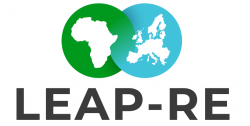 LEAP-RE (2020-2025), Long-Term Joint EU-AU Research and Innovation Partnership on Renewable Energy, is a research and innovation action seeking to create a long-term partnership of stakeholders in the field of renewable energy. The project will fund external research, innovation, and capacity-building activities as well as implement similar activities internally. In the long term, the project will create a framework, methodology, and cooperation model for the partnership. The project builds on the previous PRE-LEAP-RE project, and directly supports the second priority of the Europe-Africa High Level Policy Dialogue on Science, Technology, and Innovation on Climate Change and Sustainable Energy.
LEAP-RE (2020-2025), Long-Term Joint EU-AU Research and Innovation Partnership on Renewable Energy, is a research and innovation action seeking to create a long-term partnership of stakeholders in the field of renewable energy. The project will fund external research, innovation, and capacity-building activities as well as implement similar activities internally. In the long term, the project will create a framework, methodology, and cooperation model for the partnership. The project builds on the previous PRE-LEAP-RE project, and directly supports the second priority of the Europe-Africa High Level Policy Dialogue on Science, Technology, and Innovation on Climate Change and Sustainable Energy.
Funded by: Horizon 2020
Past Projects
LEA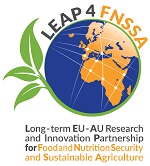 P4FNSSA (2018-2022), Long-term EU-AU Research and Innovation Partnership for Food and Nutrition Security and Sustainable Agriculture, is a coordination and support project to establish a sustainable partnership platform for EU-AU research and innovation on food and nutrition security and sustainable agriculture (FNSSA). The platform will be developed through creating networks and clusters of projects, a large knowledge base, and a co-funding mechanism. It will be a tool for efficiently implementing the Roadmap for FNSSA set by the Europe-Africa High Level Policy Dialogue on Science, Technology and Innovation. LEAP4FNSSA builds upon former projects such as RINEA, CAAST-Net Plus, and ProIntensAfrica, and links to the ongoing LEAP-Agri.
P4FNSSA (2018-2022), Long-term EU-AU Research and Innovation Partnership for Food and Nutrition Security and Sustainable Agriculture, is a coordination and support project to establish a sustainable partnership platform for EU-AU research and innovation on food and nutrition security and sustainable agriculture (FNSSA). The platform will be developed through creating networks and clusters of projects, a large knowledge base, and a co-funding mechanism. It will be a tool for efficiently implementing the Roadmap for FNSSA set by the Europe-Africa High Level Policy Dialogue on Science, Technology and Innovation. LEAP4FNSSA builds upon former projects such as RINEA, CAAST-Net Plus, and ProIntensAfrica, and links to the ongoing LEAP-Agri.
Funded by: Horizon 2020
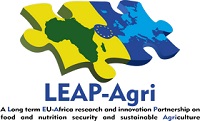 LEAP-Agri (2016-2021), a long-term EU-Africa research and innovation partnership on Food and Nutrition Security and Sustainable Agriculture, brings together research funding agencies from interested European and African countries to jointly fund research projects with partners from participating counties. The project contributes to the ambition of the Europe-Africa High Level Policy Dialogue on Science, Technology, and Innovation to launch a joint flagship initiative on the first priority area of food and nutrition security and sustainable agriculture. More information, including open calls, from the LEAP-Agri website.
LEAP-Agri (2016-2021), a long-term EU-Africa research and innovation partnership on Food and Nutrition Security and Sustainable Agriculture, brings together research funding agencies from interested European and African countries to jointly fund research projects with partners from participating counties. The project contributes to the ambition of the Europe-Africa High Level Policy Dialogue on Science, Technology, and Innovation to launch a joint flagship initiative on the first priority area of food and nutrition security and sustainable agriculture. More information, including open calls, from the LEAP-Agri website.
Funded by: Horizon 2020
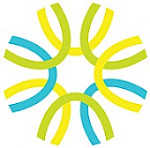 The FinCEAL Plus BRIDGES project (2019-2021) supported the development of partnerships and collaborative research activities between the Finnish research community and those in Africa, Asia, and Latin America and the Caribbean (LAC). In addition, the project facilitates connections with European partners, whenever the cooperation also includes partners from the target regions. The project is an extension of the FinCEAL (2013-2014), FinCEAL Plus (2015-2016) and FinCEAL Plus Continuation initiatives, all financed by the Finnish Ministry of Education and Culture. The Ministry has mandated the UniPID network to coordinate the initiative.
The FinCEAL Plus BRIDGES project (2019-2021) supported the development of partnerships and collaborative research activities between the Finnish research community and those in Africa, Asia, and Latin America and the Caribbean (LAC). In addition, the project facilitates connections with European partners, whenever the cooperation also includes partners from the target regions. The project is an extension of the FinCEAL (2013-2014), FinCEAL Plus (2015-2016) and FinCEAL Plus Continuation initiatives, all financed by the Finnish Ministry of Education and Culture. The Ministry has mandated the UniPID network to coordinate the initiative.
Funded by: Ministry of Education and Culture
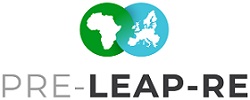 PRE-LEAP-RE (2018-2019), PREparing for a Long-Term Joint EU-AU Research and Innovation Partnership on Renewable Energy, is a fourteen-month project to prepare a strategic, jointly-designed research and innovation partnership between Europe and Africa in the field of Renewable Energy. The project directly supports the second priority of the Europe-Africa High Level Policy Dialogue on Science, Technology, and Innovation on Climate Change and Sustainable Energy.
PRE-LEAP-RE (2018-2019), PREparing for a Long-Term Joint EU-AU Research and Innovation Partnership on Renewable Energy, is a fourteen-month project to prepare a strategic, jointly-designed research and innovation partnership between Europe and Africa in the field of Renewable Energy. The project directly supports the second priority of the Europe-Africa High Level Policy Dialogue on Science, Technology, and Innovation on Climate Change and Sustainable Energy.
Funded by: Horizon 2020
 The FinCEAL Plus Continuation (2017-2018) project focuses on supporting Finnish scientific and technological collaboration and policy influence with Africa, Asia, and Latin America and the Caribbean under the thematic areas defined in the bi-regional policy discussions. The principal target group of the project are researchers and experts based in Finnish universities and research institutions. FinCEAL Plus also organizes national and international thematic networking events; maintains the Infobank database of research projects related to Africa, Asia and the LAC region; and disseminates information on cooperation and funding opportunities through its monthly Newsletter and LinkedIn group.
The FinCEAL Plus Continuation (2017-2018) project focuses on supporting Finnish scientific and technological collaboration and policy influence with Africa, Asia, and Latin America and the Caribbean under the thematic areas defined in the bi-regional policy discussions. The principal target group of the project are researchers and experts based in Finnish universities and research institutions. FinCEAL Plus also organizes national and international thematic networking events; maintains the Infobank database of research projects related to Africa, Asia and the LAC region; and disseminates information on cooperation and funding opportunities through its monthly Newsletter and LinkedIn group.
Funded by: Ministry of Education and Culture
 RINEA (2015-2018) provides the scientific community with information on the African Union-European Union collaboration in science, technology, and innovation. RINEA provides the public information about the policy processes that shape this science and innovation collaboration via the Africa-EU Science, Technology, and Innovation portal. Research funding opportunities, relevant events, and other relevant news are also advertised via the portal.
RINEA (2015-2018) provides the scientific community with information on the African Union-European Union collaboration in science, technology, and innovation. RINEA provides the public information about the policy processes that shape this science and innovation collaboration via the Africa-EU Science, Technology, and Innovation portal. Research funding opportunities, relevant events, and other relevant news are also advertised via the portal.
Funded by: Horizon 2020
SIMHE (2017) acted as a pilot project for MEC`s national initiative to reinforce Finnish higher education institutions (HEIs) as significant stakeholders in migrants' integration. The project co-operated with a simultaneous pilot project of Metropolia University of Applied Sciences. SIMHE-UniPID provided guidance and counselling for migrant adults living in Finland and interested in beginning higher education studies. The project also offered consultation with recognizing the studies and know-how learnt previously and facilitated the dialogue between migration related research and good practices by participating in international and nation-wide seminars, workshops and scientific conferences.
Funded by: Ministry of Education and Culture
 ERAfrica (2010-2014) ERAfrica aims to reduce the fragmentation of the European Research Area by increasing the coordination between national research programmes across European Union Member States and Associated countries, in close coordination with national research programmes in Africa. ERAfrica brought together research funding agencies from 18 countries in Africa and Europe to jointly fund 17 research, innovation, and capacity building projects in the themes of Renewable Energies, Interfacing Challenges, and New Ideas. Read more about the projects funded and their outcomes.
ERAfrica (2010-2014) ERAfrica aims to reduce the fragmentation of the European Research Area by increasing the coordination between national research programmes across European Union Member States and Associated countries, in close coordination with national research programmes in Africa. ERAfrica brought together research funding agencies from 18 countries in Africa and Europe to jointly fund 17 research, innovation, and capacity building projects in the themes of Renewable Energies, Interfacing Challenges, and New Ideas. Read more about the projects funded and their outcomes.
Funded by: Framework Programme 7
 CAAST-Net Plus is a network of 26 partner organizations from all over Europe and sub-Saharan Africa working together to support bi-regional cooperation in research and innovation. Building on the results of the CAAST-Net project, CAAST-Net Plus aims to: encourage more and better bi-regional STI cooperation for enhanced outcomes around topics of mutual interest, and particularly in relation to the global societal challenges of climate change, food security, and health; and foster discussion among stakeholders for gathering informed opinion and experience about the bi-regional cooperation process, formulating and disseminating it in such a way as to be admissible to the formal bi-ergional STI policy dialogue process and to programme owners.
CAAST-Net Plus is a network of 26 partner organizations from all over Europe and sub-Saharan Africa working together to support bi-regional cooperation in research and innovation. Building on the results of the CAAST-Net project, CAAST-Net Plus aims to: encourage more and better bi-regional STI cooperation for enhanced outcomes around topics of mutual interest, and particularly in relation to the global societal challenges of climate change, food security, and health; and foster discussion among stakeholders for gathering informed opinion and experience about the bi-regional cooperation process, formulating and disseminating it in such a way as to be admissible to the formal bi-ergional STI policy dialogue process and to programme owners.
Funded by: Horizon 2020
 The CAAST-Net project (2008-2012), the Network for the Coordination and Advancement of Sub-Saharan Africa-EU Science and Technology Cooperation, launched with the aim of increasing the quality and quantity of b-regional cooperation in science and technology between Europe and Africa, targeting areas of mutual interest and benefit through greater use of instruments under FP7, as well as through other instruments of international cooperation, and through lobbying for greater synergy between R&D and development instruments.
The CAAST-Net project (2008-2012), the Network for the Coordination and Advancement of Sub-Saharan Africa-EU Science and Technology Cooperation, launched with the aim of increasing the quality and quantity of b-regional cooperation in science and technology between Europe and Africa, targeting areas of mutual interest and benefit through greater use of instruments under FP7, as well as through other instruments of international cooperation, and through lobbying for greater synergy between R&D and development instruments.
Funded by: Framework Programme 7
 DocLinks (2011-2013) worked on enhancing mutual understanding through the creation of a unique network bringing together African and European research students. Two residential schools were organized in both Europe and Africa and allowed for face-to-face collaboration and networking, while a dedicated LinkedIn virtual network continued this cooperation and communication after the residential schools.
DocLinks (2011-2013) worked on enhancing mutual understanding through the creation of a unique network bringing together African and European research students. Two residential schools were organized in both Europe and Africa and allowed for face-to-face collaboration and networking, while a dedicated LinkedIn virtual network continued this cooperation and communication after the residential schools.
Funded by: Erasmus Mundus
Photo credit: Ben White, 2016, on Unsplash.